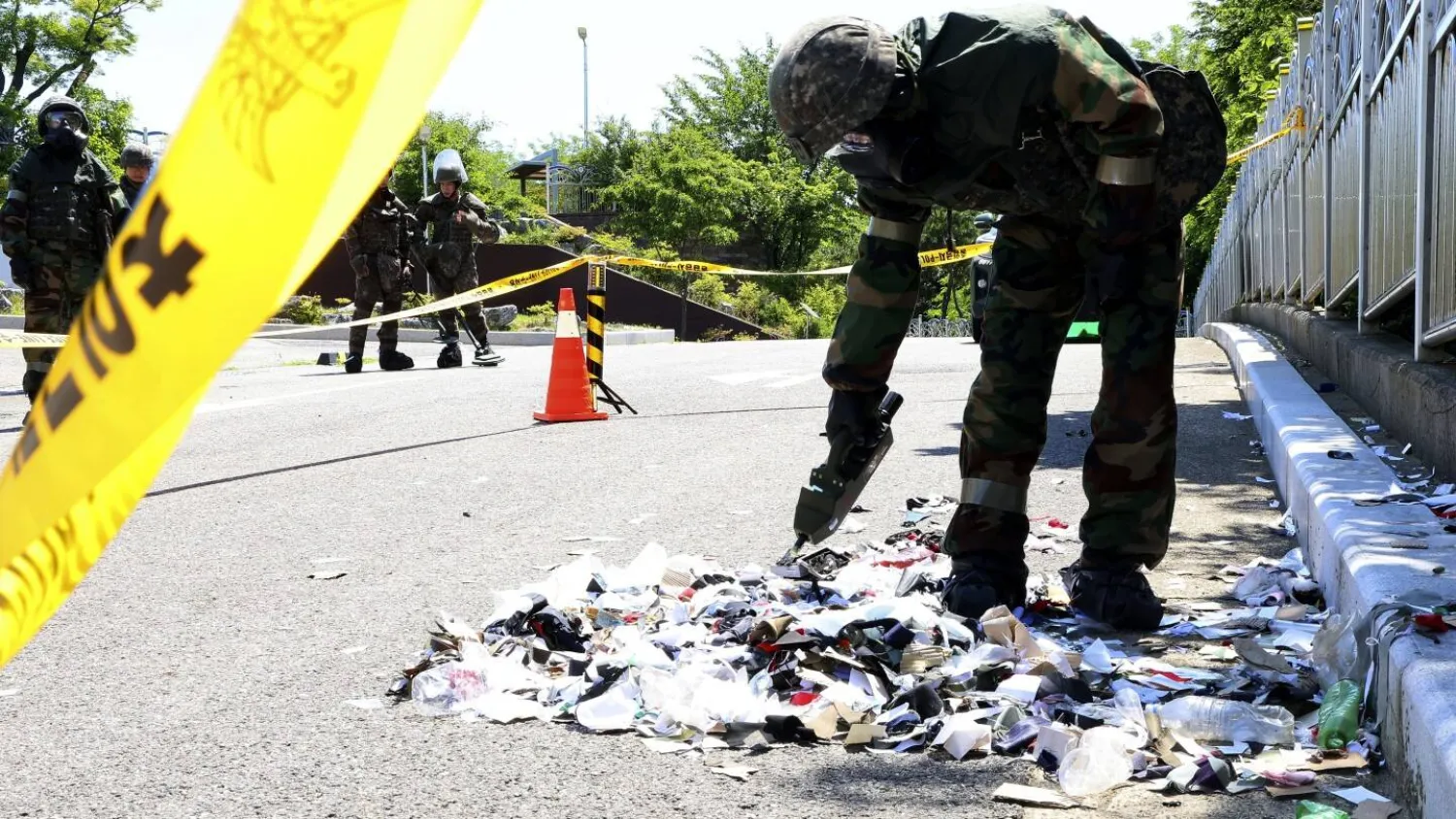North Korea again launched a raft of balloons likely carrying trash toward South Korea on Wednesday, Seoul officials said, the 10th such balloon incident in less than two months following South Korea's resumption of frontline propaganda broadcasts.
The tit-for-tat Cold War-style campaigns between the two Koreas are inflaming tensions on the Korean Peninsula, with the rival threatening stronger steps and warning of grave consequences, The AP reported.
South Korea’s Joint Chiefs of Staff said in a statement the North Korean balloons are flying north of Seoul on Wednesday morning after crossing the border. It urged the South Korean people to be alert for falling objects.
Since late May, North Korea has floated more than 2,000 rubbish-carrying balloons on a series of launch events, dropping waste paper, scraps of cloth, cigarette butts and even manure on South Korea. North Korea has argued its balloon campaigns are a response to South Korean activists scattering political leaflets across the border via their own balloons.
Experts say North Korea considers South Korean civilian leafleting activities a major threat to its efforts to crack down on the inflow of foreign news. In furious responses to past South Korean leafletting, North Korea destroyed an empty South Korean-built liaison office in its territory in 2020 and fired at incoming balloons in 2014.
The North’s balloon flying hasn’t caused major damages in South Korea. But it has caused security jitters among many people who think North Korea could use balloons to drop more hazardous materials like chemical and biological agents next time.
South Korea said Sunday it was bolstering its anti-Pyongyang propaganda broadcasts from its loudspeakers along the land border because North Korea was continuing launches of trash-carrying balloons.
The latest South Korean broadcasts included K-pop songs and news on BTS member Jin’s torch-bearing ahead of the Paris Olympics and the recent defection of a senior North Korean diplomat. The broadcasts also called the mine-planting works by North Korean soldiers at the border “hellish, slave-like lives,” according to South Korean media.
Experts say South Korean propaganda broadcasts can demoralize frontline North Korean troops and residents, posing a blow to the North’s efforts to limit access to outside news for its 26 million people. South Korean officials have previously said broadcasts from their loudspeakers can travel about 10 kilometers (6 miles) during the day and 24 kilometers (15 miles) at night.









